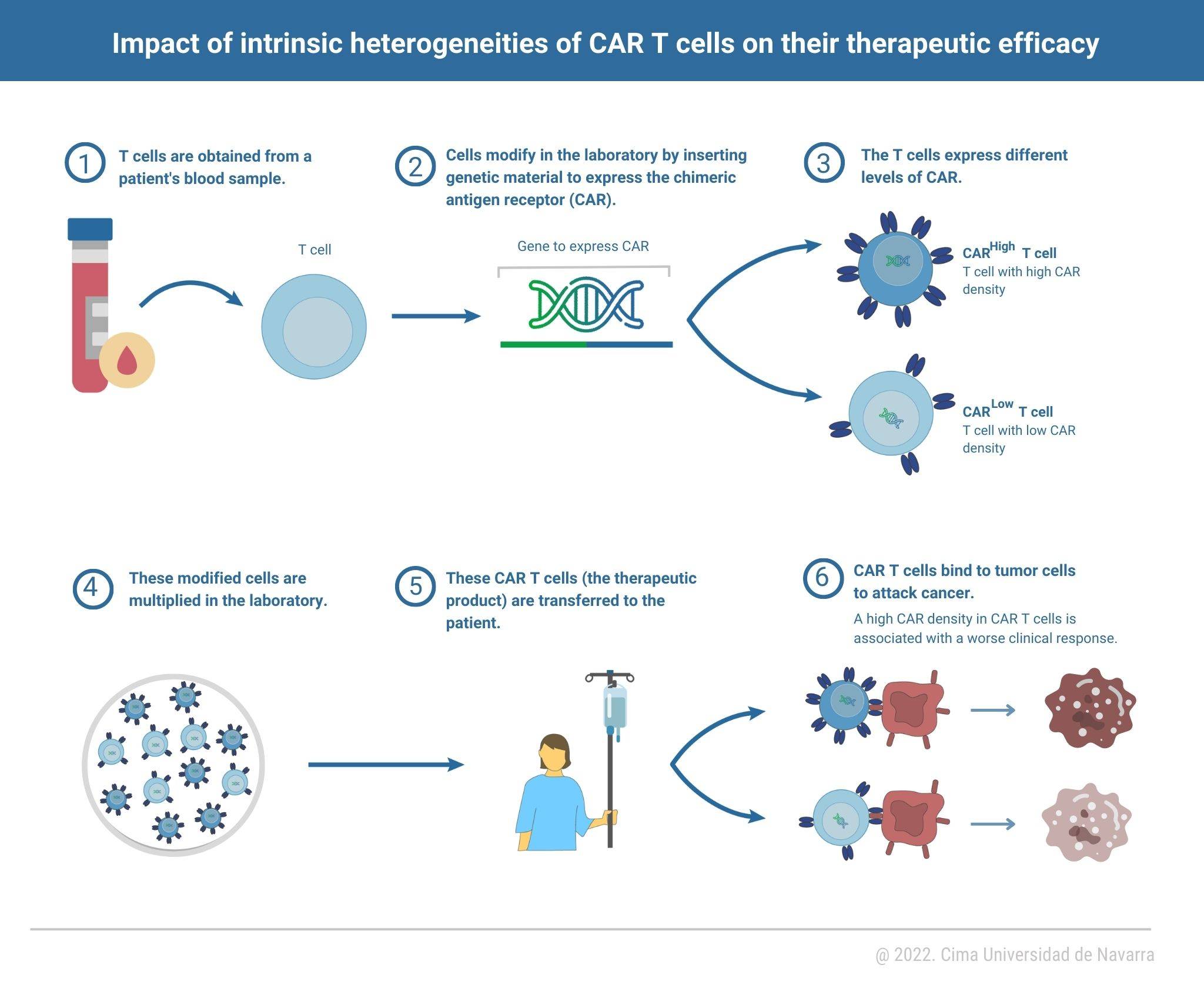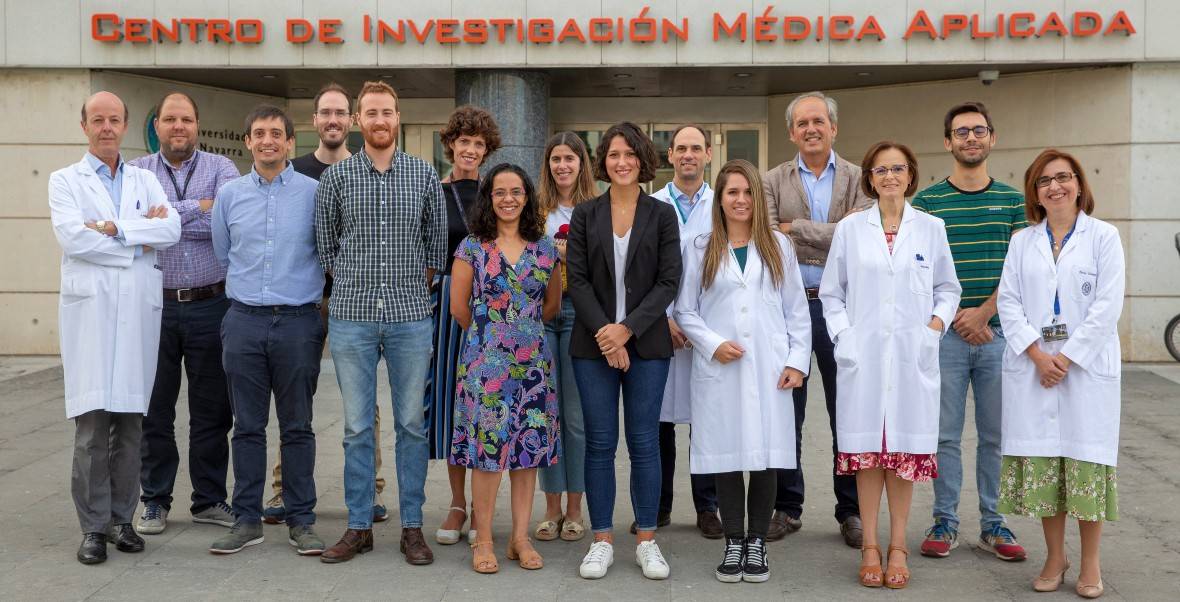Scientists identify a biomarker that predicts CAR T therapy efficacy
Researchers from Cima and the Clínica Universidad de Navarra describe CAR T cell characteristics that determine their therapeutic capacity for the first time. This finding could predict the effect of these advanced therapies in patients and also help to improve them
September 30, 2022
Researchers from Cima and the Clínica Universidad de Navarra have described for the first time characteristics of CAR T cells that determine their therapeutic capacity. In their study, validated in patients with different types of blood cancer, the researchers have identified that these cells modified in the laboratory show differences in their therapeutic efficacy. This finding could help predict the effect of this advanced therapy on the patient and contribute to improving these therapies
Researchers from the Hospital Clínic de Barcelona and the Hospital Universitario de Navarra participated in this research. The results of this study are published in the last issue of the scientific journal Science Advances.
CAR T cells uncovered
Current medicine approaches face the challenge of generating more efficient and durable CAR T therapies for treating hematological malignancies, especially in the case of multiple myeloma. CAR T therapy is a treatment in which the patient's immune cells, specifically T lymphocytes, are modified in the laboratory to add a chimeric antigen receptor (CAR). This special receptor is designed to bind to specific proteins present in cancer cells to boost the immune response and attack the disease.
Several studies have shown that various factors external to CAR T cells, such as the number of tumor cells or the tumor microenvironment conditions, greatly influence the efficacy of this advanced therapy. However, until now, the impact of these cells' characteristics has not been considered.
"Combining artificial intelligence with cutting-edge flow cytometry and massive sequencing technologies, we have identified that CAR T cells are different from each other and that this heterogeneity plays an important role in the efficacy of the therapeutic product that reaches the patient," says Mikel Hernáez, director of the Computational Biology Program at Cima and one of the principal investigators of the study.
Characteristics of CAR T cells
"We observed that when generating CAR T cells in the laboratory, some cells had more CAR receptors than others. Specifically, our data have shown that the presence of a high CAR density in CAR T cells is associated with a significantly worse clinical response in several hematological tumors," explains Juan Roberto Rodríguez Madoz, a researcher in the Hemato-Oncology Program at Cima.
This finding "helps us to identify key mechanisms that regulate the efficacy of CAR T cells, which could be modulated to develop improved therapies. Furthermore, it could represent a valuable tool for predicting responses in patients undergoing CAR T-cell therapy", concludes Felipe Prósper, senior researcher at Cima, director of the Cell Therapy area, and co-director of the Hematology Service of the Clínica Universidad de Navarra.
Drs. Prósper, Rodríguez-Madoz, Hernáez, and several study researchers are part of the Center for Biomedical Research Network in Cancer (CIBERONC) and the Institute for Health Research of Navarra (IdiSNA). This work received funding from the Marie S. Curie Program of the European Commission, the Ministry of Science and Innovation, the Carlos III Health Institute (co-financed with ERDF funds), the Advanced Therapies Network (TERAV), and the Government of Navarra. It has also received support from the Spanish Association Against Cancer and the La Caixa Foundation, among other private institutions.

